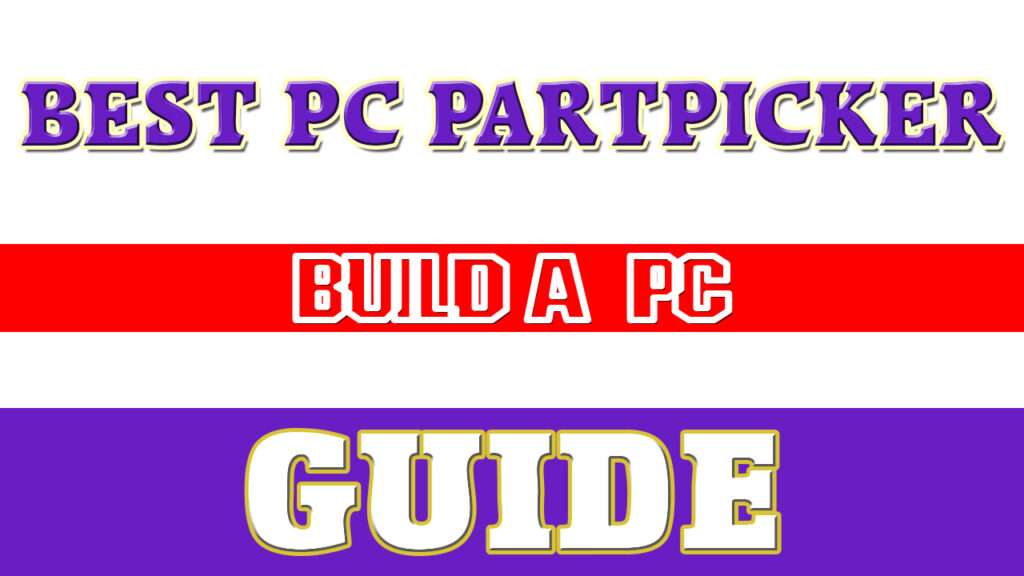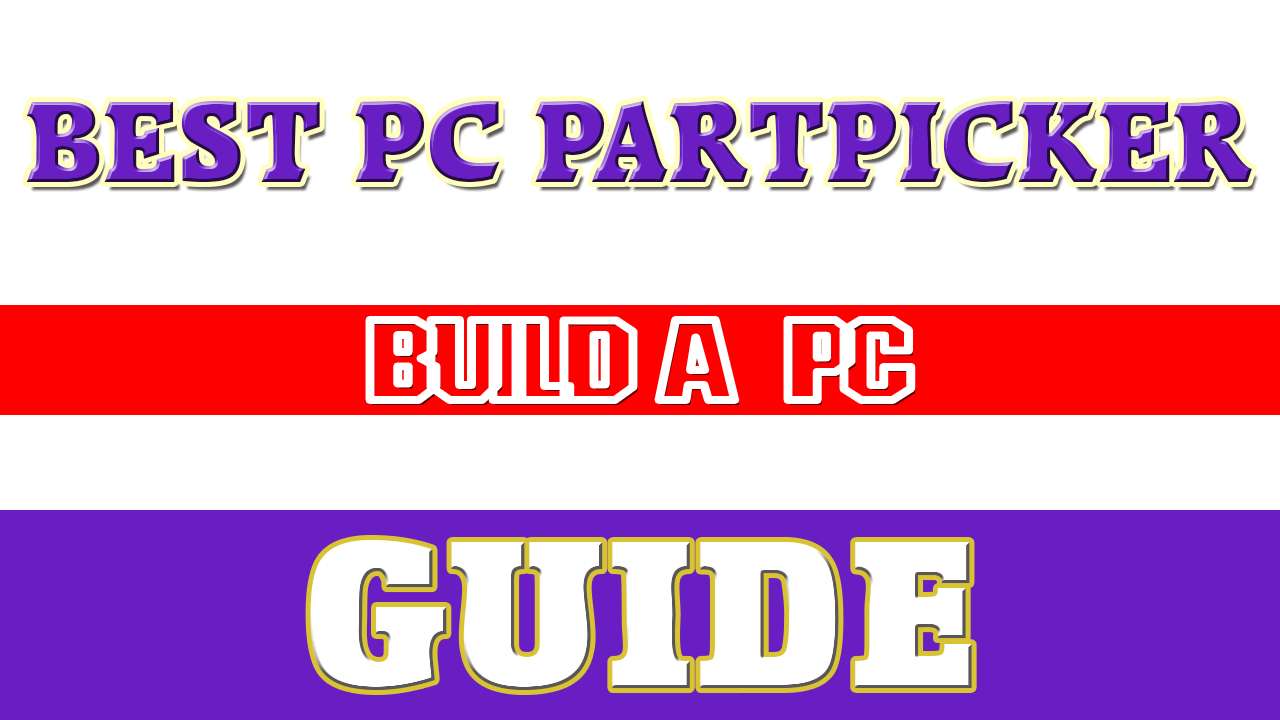
Building Your Ultimate Gaming PC with PCPartPicker
Whether you’re a casual gamer or a hardcore enthusiast, building your own gaming PC allows you to customize every aspect to suit your needs and preferences.
With the help of PCPartPicker, an invaluable tool for PC builders, creating your dream gaming rig has never been easier.
In this guide, we’ll walk you through the process of using PCPartPicker to assemble the ultimate gaming PC tailored to your specifications.
Understanding PCPartPicker:
PCPartPicker is a comprehensive online platform that simplifies the process of building a PC. It allows users to browse through a vast database of computer components, including CPUs, GPUs, motherboards, RAM, storage drives, power supplies, and more.
The platform also provides compatibility checks to ensure that the selected components are compatible with each other, eliminating the hassle of manually verifying compatibility.
Selecting the Right Components:
The first step in building a gaming PC with PCPartPicker is selecting the right components. Start by choosing a powerful CPU from brands like Intel or AMD, depending on your budget and performance requirements.
For gaming purposes, a high-performance CPU with multiple cores and threads is ideal to handle the demands of modern games.
Next, select a graphics card (GPU) that can deliver the level of performance you desire. NVIDIA and AMD offer a range of GPUs catering to different budgets and gaming preferences. Consider factors such as VRAM capacity, clock speeds, and cooling solutions when choosing a GPU for your gaming rig.
When it comes to memory (RAM), opt for a DDR4 module with sufficient capacity and speed to ensure smooth multitasking and gaming performance. PCPartPicker makes it easy to filter RAM options based on capacity, speed, and latency, allowing you to find the perfect match for your build.
Storage is another crucial aspect of a gaming PC. Consider a combination of SSD and HDD storage for optimal performance and capacity.
An SSD offers fast boot times and load speeds for games and applications, while an HDD provides ample storage space for large game libraries and media files.
Choosing a motherboard is where PCPartPicker truly shines. The platform allows you to filter motherboards based on chipset, form factor, features, and brand preferences.
Ensure that the selected motherboard has the necessary connectivity options and expansion slots to accommodate your chosen components.
Power supply selection is often overlooked but is critical for the stability and longevity of your gaming PC. Choose a high-quality PSU with sufficient wattage and efficiency ratings to power all components reliably. PCPartPicker provides a wattage estimate based on selected components, helping you choose the right PSU for your build.
Assembling Your Gaming PC:
Once you’ve selected all the components using PCPartPicker, it’s time to assemble your gaming PC. Follow a detailed guide or tutorial to ensure proper installation of each component, taking care to ground yourself and handle components with caution to prevent damage.
Start by installing the CPU and CPU cooler onto the motherboard, followed by RAM modules, storage drives, and expansion cards. Mount the motherboard into the case, connect all cables and connectors, and secure the power supply. Finally, install the graphics card, connect all peripherals, and power on your gaming PC for the first time.
Testing and Optimization:
After assembling your gaming PC, it’s essential to test its performance and optimize settings for the best gaming experience. Install the necessary drivers for your components, update the BIOS, and run stress tests to ensure stability under load.
Use benchmarking tools to gauge the performance of your gaming PC and adjust settings as needed to achieve the desired balance between graphical fidelity and performance. Overclocking enthusiasts can also fine-tune settings to extract maximum performance from their hardware, but proceed with caution and monitor temperatures to prevent overheating.
Optimize Graphics Settings: Most modern games offer a plethora of graphics settings that can be adjusted to balance visual quality and performance. Experiment with different settings to find the optimal configuration for your hardware, aiming for a smooth frame rate without sacrificing visual fidelity.
Install System Monitoring Software: Keep tabs on your gaming PC’s performance and temperatures using system monitoring software. Programs like MSI Afterburner and HWMonitor allow you to monitor CPU and GPU temperatures, clock speeds, and usage in real-time, helping you identify any potential issues or bottlenecks.
Regular Maintenance: Proper maintenance is key to ensuring the longevity and performance of your gaming PC. Periodically clean dust buildup from your components using compressed air, and check for any loose connections or signs of wear and tear. Additionally, consider applying fresh thermal paste to your CPU and GPU to maintain optimal temperatures.
Explore Overclocking: For users seeking additional performance gains, overclocking can unlock the full potential of your CPU and GPU. However, overclocking carries inherent risks and may void warranties, so proceed with caution and research proper overclocking techniques for your specific hardware.
Upgrade Strategically: As technology advances, new hardware releases may offer significant performance improvements over older components. Keep an eye on hardware trends and consider upgrading individual components, such as the CPU, GPU, or storage drives, to stay ahead of the curve and maintain peak gaming performance.
Customize Your Setup: Personalize your gaming experience by customizing your setup with peripherals and accessories that complement your gaming PC. Invest in a high-quality gaming monitor with features like high refresh rates and low response times for a smoother gaming experience. Consider ergonomic gaming chairs, RGB lighting, and immersive audio solutions to enhance your gaming environment further.
Join the Community: The gaming community is a valuable resource for PC enthusiasts, offering forums, communities, and online resources where you can seek advice, share experiences, and stay updated on the latest trends and developments in PC gaming. Engage with fellow gamers, participate in discussions, and learn from others’ experiences to elevate your gaming PC setup.
Conclusion:
Building a gaming PC with PCPartPicker is an empowering experience that allows you to create a custom rig tailored to your gaming preferences and budget. By carefully selecting components and following best practices for assembly and optimization, you can build the ultimate gaming PC that delivers exceptional performance and immersion in your favorite games. With PCPartPicker as your guide, the possibilities are endless for creating the gaming rig of your dreams.
(FAQs)
1. What is PCPartPicker, and how does it work?
- PCPartPicker is an online platform that assists users in selecting compatible components for building custom PCs. It offers a vast database of computer parts, including CPUs, GPUs, motherboards, RAM, storage drives, and power supplies. Users can browse through components, compare prices from various retailers, and ensure compatibility using built-in compatibility filters.
2. Is PCPartPicker free to use?
- Yes, PCPartPicker is free for users to use. There is no cost associated with browsing components, creating builds, or utilizing compatibility checks. However, users should note that PCPartPicker earns revenue through affiliate links to retailers, where users may choose to purchase components.
3. Can I trust PCPartPicker’s compatibility checks?
- PCPartPicker’s compatibility checks are highly reliable, but users should always double-check compatibility, especially when dealing with niche components or custom builds. The platform cross-references compatibility data from manufacturers and user feedback to ensure accurate compatibility checks.
4. What are the essential components needed to build a gaming PC?
- The essential components for a gaming PC include a CPU, GPU, motherboard, RAM, storage drive(s), power supply, and a computer case. Optional components such as cooling solutions, peripherals, and RGB lighting can also enhance the gaming experience.
5. What factors should I consider when selecting components for a gaming PC?
- When selecting components for a gaming PC, consider factors such as performance, budget, compatibility, future upgradeability, and aesthetic preferences. Choose a CPU and GPU that can handle the demands of modern games, sufficient RAM for multitasking, and storage options that balance speed and capacity.
6. Do I need to have prior experience to build a gaming PC using PCPartPicker?
- While prior experience with PC building can be beneficial, PCPartPicker is designed to be user-friendly and accessible to beginners. The platform provides helpful guides, compatibility checks, and community forums to assist users throughout the build process.
7. How long does it take to build a gaming PC using PCPartPicker?
- The time it takes to build a gaming PC varies depending on factors such as the complexity of the build, familiarity with PC building, and availability of components. A straightforward build can be completed in a few hours, while more intricate custom builds may take longer.
8. Can I upgrade my gaming PC in the future?
- Yes, one of the advantages of building a gaming PC is the ability to upgrade components as needed. PCPartPicker makes it easy to identify compatible upgrades and plan future expansions, allowing users to adapt their gaming PC to evolving performance requirements and technologies.
9. Where can I find additional resources and support for building and optimizing my gaming PC?
- In addition to PCPartPicker, there are numerous online resources, forums, and communities dedicated to PC building and gaming. Websites such as Reddit’s r/buildapc and Tom’s Hardware offer valuable insights, troubleshooting tips, and user-generated content to assist PC builders at every skill level.
10. Is building a gaming PC worth it compared to buying a pre-built system?
- Building a gaming PC offers several advantages, including customization options, potential cost savings, and the satisfaction of creating a personalized rig. While pre-built systems may be convenient for some users, building a PC allows for greater control over component selection, performance optimization, and future upgrades. Additionally, building a PC can be a rewarding learning experience and hobby for enthusiasts.

